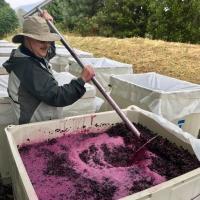-
Welcome to the eG Forums, a service of the eGullet Society for Culinary Arts & Letters. The Society is a 501(c)3 not-for-profit organization dedicated to the advancement of the culinary arts. These advertising-free forums are provided free of charge through donations from Society members. Anyone may read the forums, but to post you must create a free account.
Varietals or Place-names?
-
Similar Content
-
- 13 replies
- 2,805 views
-
- 8 replies
- 2,205 views
-
- 11 replies
- 2,651 views
-
- 6 replies
- 1,998 views
-
- 2 replies
- 1,535 views
-
-
Recently Browsing 0 members
- No registered users viewing this page.





Recommended Posts